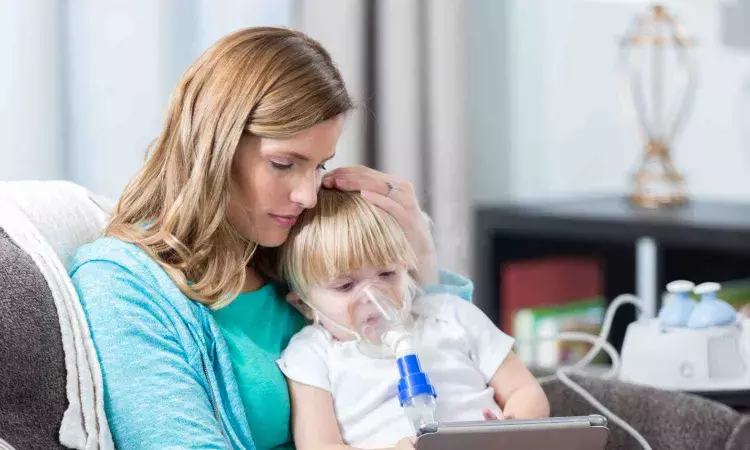- Home
- Medical news & Guidelines
- Anesthesiology
- Cardiology and CTVS
- Critical Care
- Dentistry
- Dermatology
- Diabetes and Endocrinology
- ENT
- Gastroenterology
- Medicine
- Nephrology
- Neurology
- Obstretics-Gynaecology
- Oncology
- Ophthalmology
- Orthopaedics
- Pediatrics-Neonatology
- Psychiatry
- Pulmonology
- Radiology
- Surgery
- Urology
- Laboratory Medicine
- Diet
- Nursing
- Paramedical
- Physiotherapy
- Health news
- Fact Check
- Bone Health Fact Check
- Brain Health Fact Check
- Cancer Related Fact Check
- Child Care Fact Check
- Dental and oral health fact check
- Diabetes and metabolic health fact check
- Diet and Nutrition Fact Check
- Eye and ENT Care Fact Check
- Fitness fact check
- Gut health fact check
- Heart health fact check
- Kidney health fact check
- Medical education fact check
- Men's health fact check
- Respiratory fact check
- Skin and hair care fact check
- Vaccine and Immunization fact check
- Women's health fact check
- AYUSH
- State News
- Andaman and Nicobar Islands
- Andhra Pradesh
- Arunachal Pradesh
- Assam
- Bihar
- Chandigarh
- Chattisgarh
- Dadra and Nagar Haveli
- Daman and Diu
- Delhi
- Goa
- Gujarat
- Haryana
- Himachal Pradesh
- Jammu & Kashmir
- Jharkhand
- Karnataka
- Kerala
- Ladakh
- Lakshadweep
- Madhya Pradesh
- Maharashtra
- Manipur
- Meghalaya
- Mizoram
- Nagaland
- Odisha
- Puducherry
- Punjab
- Rajasthan
- Sikkim
- Tamil Nadu
- Telangana
- Tripura
- Uttar Pradesh
- Uttrakhand
- West Bengal
- Medical Education
- Industry
Deep Learning-Based CT Scan Segmentation may Predict Outcomes in Idiopathic Pulmonary Fibrosis, reveals research

Deep-learning algorithms can effectively segment CT scans of patients with idiopathic pulmonary fibrosis (IPF) and thus offer prognostic information to clinicians, researchers have reported.
According to a team led by Munhunthan Thillai, MD, of the Royal Papworth Hospital in Cambridge, United Kingdom, the data could be used to enhance how IPF patients are followed and treated. The findings were published on November 29, 2023, in the American Journal of Respiratory and Critical Care Medicine.
In the conduction of the study, a group of 446 not-yet-treated IPF patients enrolled in the PROFILE (Prospective Observation of Fibrosis in the Lung Clinical Endpoints) and the authors used deep learning-based CT scan segmentation to test the use of biomarkers (airway, lung, vascular, and fibrosis volumes) for IPF diagnosis and applied them to data received from the enrolled patients. They looked for any correlations between biomarkers and lung function, illness progression, and mortality. Over five years after diagnosis of IPF, the median follow-up was 39.1 months, with a cumulative incidence of death of 277, or 62.1%.
The deep-learning algorithm successfully segmented 97.8% of the CT images, the team reported. It also found the following results:
- Researchers found that higher lung, vascular, and fibrosis volumes were linked to lower five-year survival rates, even after controlling for gender and age.
- Reduced lung capacity and increased fibrosis volume were linked to lower survival rates.
- Lower lung volume, higher vascular volume, and increased fibrosis volume were linked to shorter two-year progression-free survival.
"We demonstrate that CT scans from patients with IPF can be used to train and develop models that can rapidly segment CT scans at scale to produce data on fibrosis, vessel, airway, and lung volumes and that these can predict both progressive disease and mortality," the study's authors concluded.
Reference
https://www.atsjournals.org/doi/10.1164/rccm.202311-2185OC
Deepanshi Bhatnagar (MSc Nutrition and Dietetics) is a professional with a master's degree in Nutrition and Dietetics from MRIIRS. With a strong academic background, she is well-versed in the principles of nutrition and dietary science. At Medical Dialogues, Deepanshi serves as the correspondent for fact-checking, where she is responsible for verifying and evaluating claims related to nutrition and diet, ensuring that all content is accurate, evidence-based, and scientifically sound.
Dr Kamal Kant Kohli-MBBS, DTCD- a chest specialist with more than 30 years of practice and a flair for writing clinical articles, Dr Kamal Kant Kohli joined Medical Dialogues as a Chief Editor of Medical News. Besides writing articles, as an editor, he proofreads and verifies all the medical content published on Medical Dialogues including those coming from journals, studies,medical conferences,guidelines etc. Email: drkohli@medicaldialogues.in. Contact no. 011-43720751


